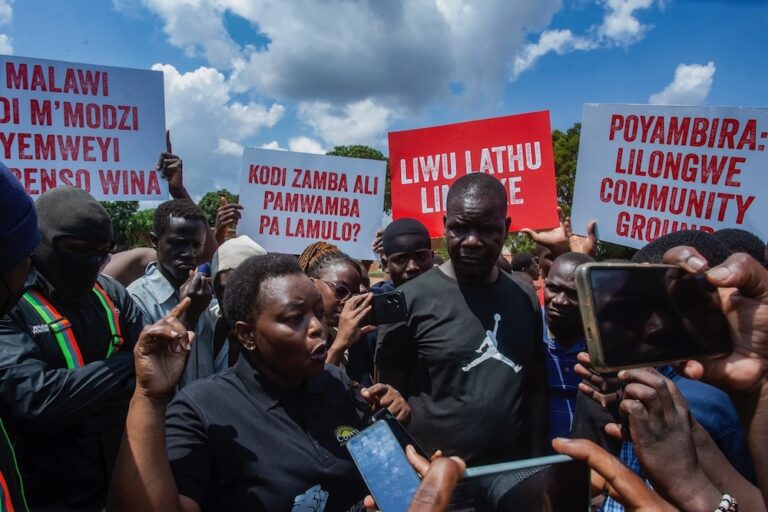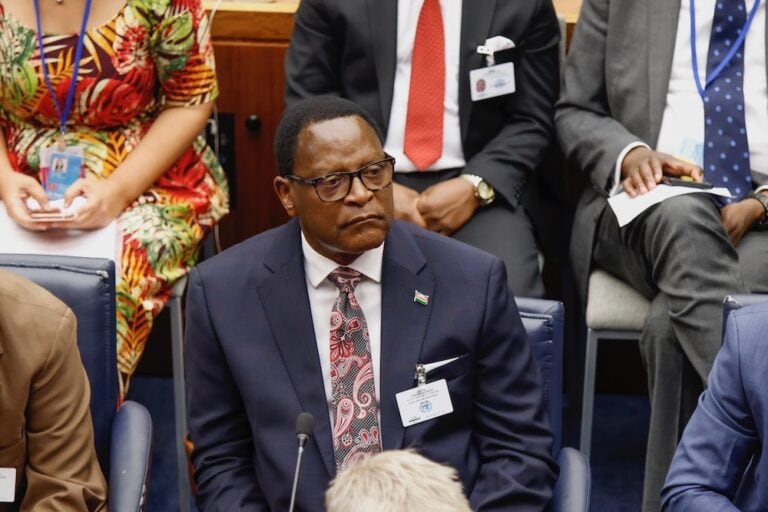(MISA/IFEX) – The owner of Karora Printers & Publishing House, Kalera Mhango, and the editor of “The Dispatch” newspaper, Martines Namingah, effectively ended a police search when they surrendered themselves to Lingadzi police on 25 and 26 May 2001 respectively. The two were charged with “publishing false information likely to cause public fear and alarm”, […]
(MISA/IFEX) – The owner of Karora Printers & Publishing House, Kalera Mhango, and the editor of “The Dispatch” newspaper, Martines Namingah, effectively ended a police search when they surrendered themselves to Lingadzi police on 25 and 26 May 2001 respectively. The two were charged with “publishing false information likely to cause public fear and alarm”, an offence they both denied having committed.
According to a report in “The Chronicle” newspaper, Namingah and Mhango were released on bail after a short court appearance on Saturday 26 May. No dates haves been set for further court appearances.
The charges come in the wake of a series of articles in “The Dispatch” entitled: “Muluzi scared”, “Muluzi fuelled the ID scam” and “NIB spying on UDF MPs” that appeared on the second page of the paper’s issue Number 9, Volume 1, dated 23 May.
The first story alleged that President Bakili Muluzi was scared, following reports that the opposition was planning to impeach him in the June parliamentary sitting.
The other story, quoting former United Democratic Front (UDF) minister Brown Mpinganjira intimated that the president was the most corrupt person in the country, while the third story laid out charges that the National Intelligence Bureau (NIB) was spying on ruling UDF members of parliament who sympathise with Mpinganjira’s National Democratic Alliance (NDA) pressure group, which he formed after being removed.
In a related development, police released four vendors on bail of K5,000 (approx. US$66.78). They were arrested on 25 May for selling “The Dispatch” newspaper.
Managing Editor of “The Chronicle” newspaper Pushpa Jamieson told MISA that independent media practitioners were very concerned about recent developments in Malawi.
“It is one thing to slap us (newspapers) with lawsuits, but quite another when they attack the printers. Chances are that printers will refuse to touch our publications for fear of being locked up,” she said.
Media activists view this recent clamp down on the media in Malawi as an effort to silence dissenting voices and as a prelude to an unconstitutional third term bid by the incumbent president.
Silence by President Muluzi on the issue had evoked much criticism from the independent media especially after calls from the church and civil society groups for the president to declare himself. He has remained resolutely silent on the matter.
(Source: “The Chronicle” contributed to this report)


